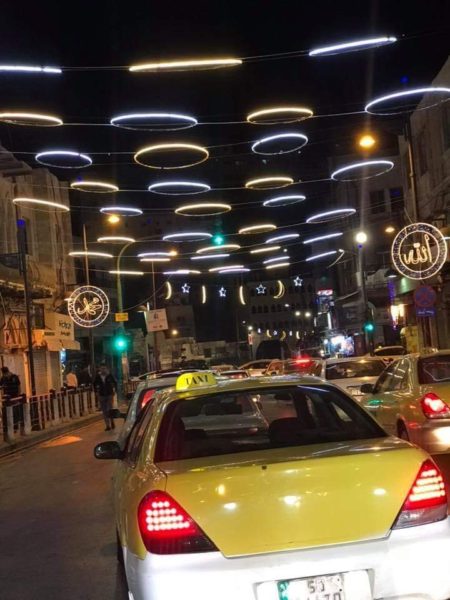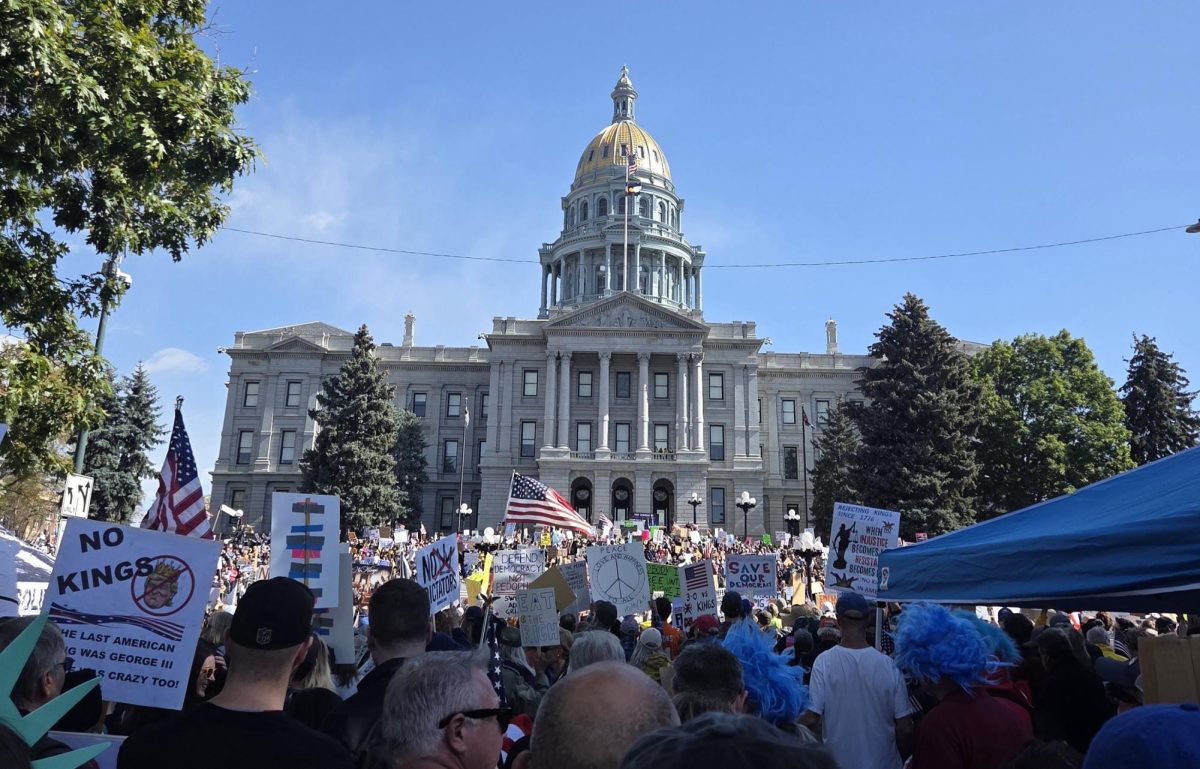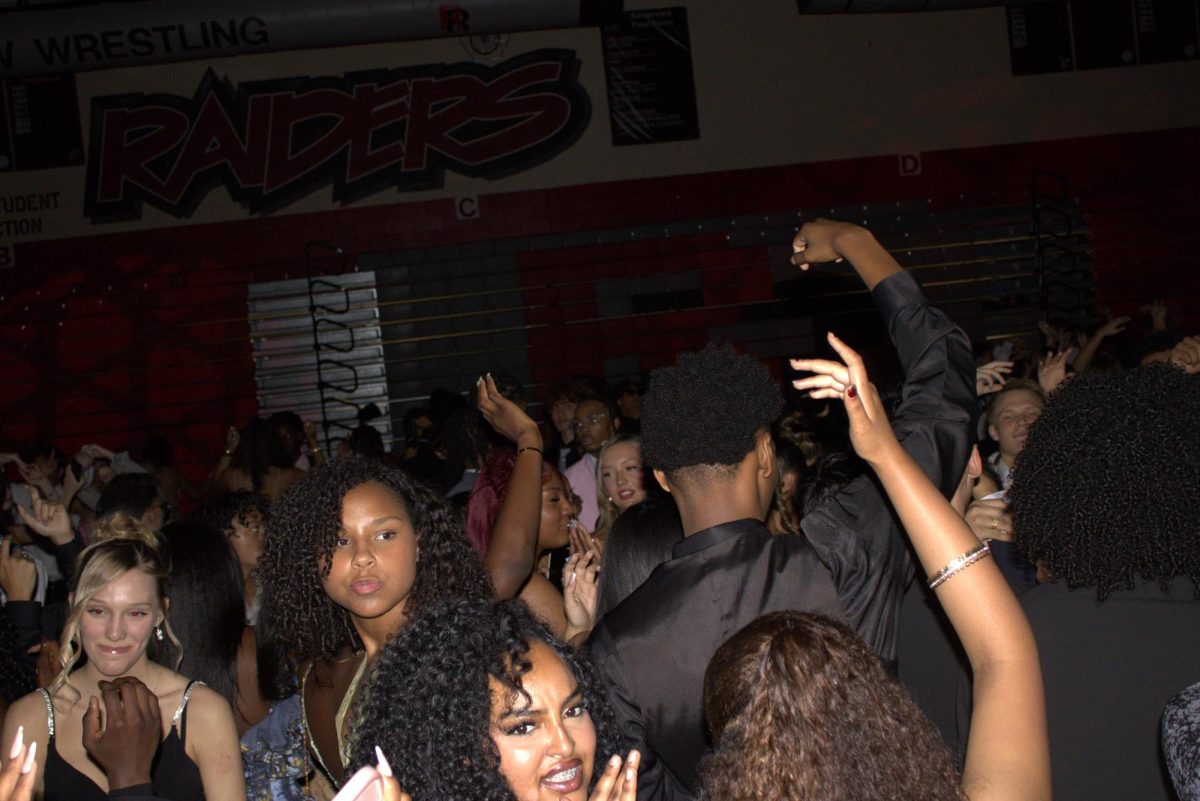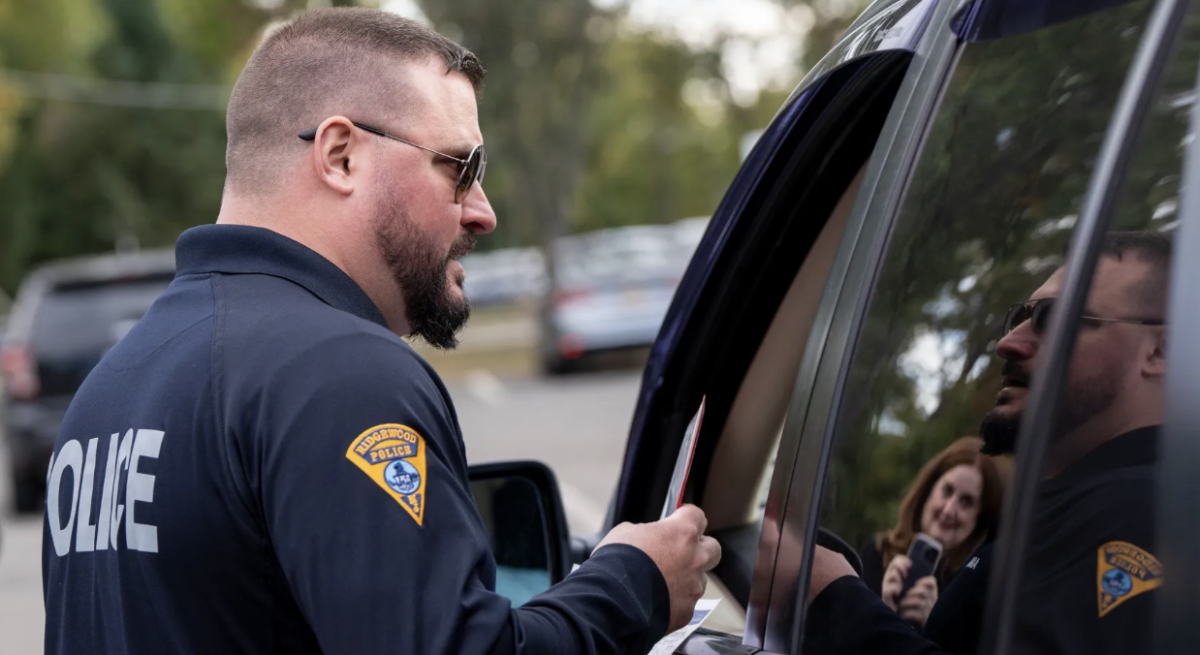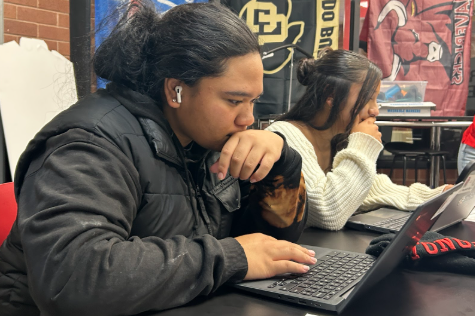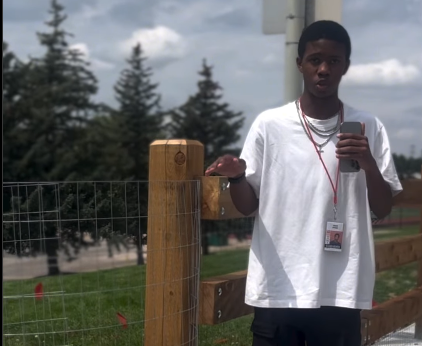Feature Photo Provided By: Wafa Duwaik- Lights hang from buildings in Jordan as Ramadan begins.
During the entire month of Ramadan, Muslims are required to fast. Every day from sunrise to sunset, Muslims are not allowed to eat or drink.
At Rangeview, there are a few students currently fasting for Ramadan. These students come to school, sit in the commons watching their friends eat while they sit starving, then they go home and wait until sunset to have their first bite of food after fasting for approximately 16 hours.
“On a personal level, fasting is a way to spiritually revive myself,” said sophomore Bonsitu Kebeto. “I become more compassionate and aware. Academically, I’m more disciplined as well, though, in the beginning of Ramadan, it’s hard to focus in school because I’m hungry.”
Fasting is considered an act of deep personal worship. This worship helps Muslims seek a raised level of closeness to God.
The month of Ramadan is believed to be the month where the Prophet Muhammad revealed the holy book — the Quran — to Muslims.
This year, Ramadan started on Monday, May 6th, and ends on Tuesday, June 4th. These dates are decided by the ninth month of the Islamic calendar.
The Islamic calendar is based on the 12-month lunar year which is 11 days shorter than the solar year — 354 days. Every year, the month of Ramadan is about 11 days earlier than the previous year.
Not only do Muslims fast for the entire month of Ramadan, they are also expected to refrain from violence, anger, greed, and gossip. Most importantly, they are expected to attempt to get along with their fellow Muslims as a collective group.
Those who are generally healthy, are obligated to fast; those who exempt include: the ill, elderly, those traveling or at war, and prepubescent children are not required to fast — they are given the option to practice fasting.
“I did once have a student with a chronic health condition that was excused from the Ramadan fast,” said Tamera Wollbrinck, school nurse. “One year, I had a student that requested to use the back room of my clinic for prayers during the time that other students were eating lunch.”
If those who are obligated to fast intentionally break the fast, they must make up for that day by fasting for 60 consecutive days, free a slave, or feed 60 people in need; many repent and ask for forgiveness.
During their fasting, Muslims have a pre-dawn meal they call suhoor. Right before the first prayer — Fajr — they are allowed to eat. At sunset, they completely break their fast with a little bit of water and dates. After they have their water and their sunset prayers, they sit down with friends and family and they have a big feast they call Iftar.

Toward the end of the month of Ramadan, Muslims celebrate Laylat al-Qadr — Night of Power/Destiny. This night falls on one of the final 10 days of Ramadan. This night includes the practice of intense prayer as they pray for answers and seek forgiveness for their sins.
“One of the biggest traditions we have is having our family over on late nights. We watch Ramadan shows at night and spend time with each other,” said Wafa Duwaik, retired paraeducator at Gateway. “During this period, we also do a lot of self-reflection and increase our prayers.”
Eid ul-Fitr marks the end of Muslim fasting. Eid ul-Fitr — or the Festival of Breaking the Fast — is the time where children are praised for successfully completing the month of Ramadan. Before anything else, all Muslims must go to a morning prayer together. On this day — June 4th this year — children usually receive money, clothing, or gift from friends and relatives.
Ramadan is an extremely important holiday for all Muslims. Here at Rangeview, we have a few Muslims who are currently fasting. Respect for this event is highly appreciated.
